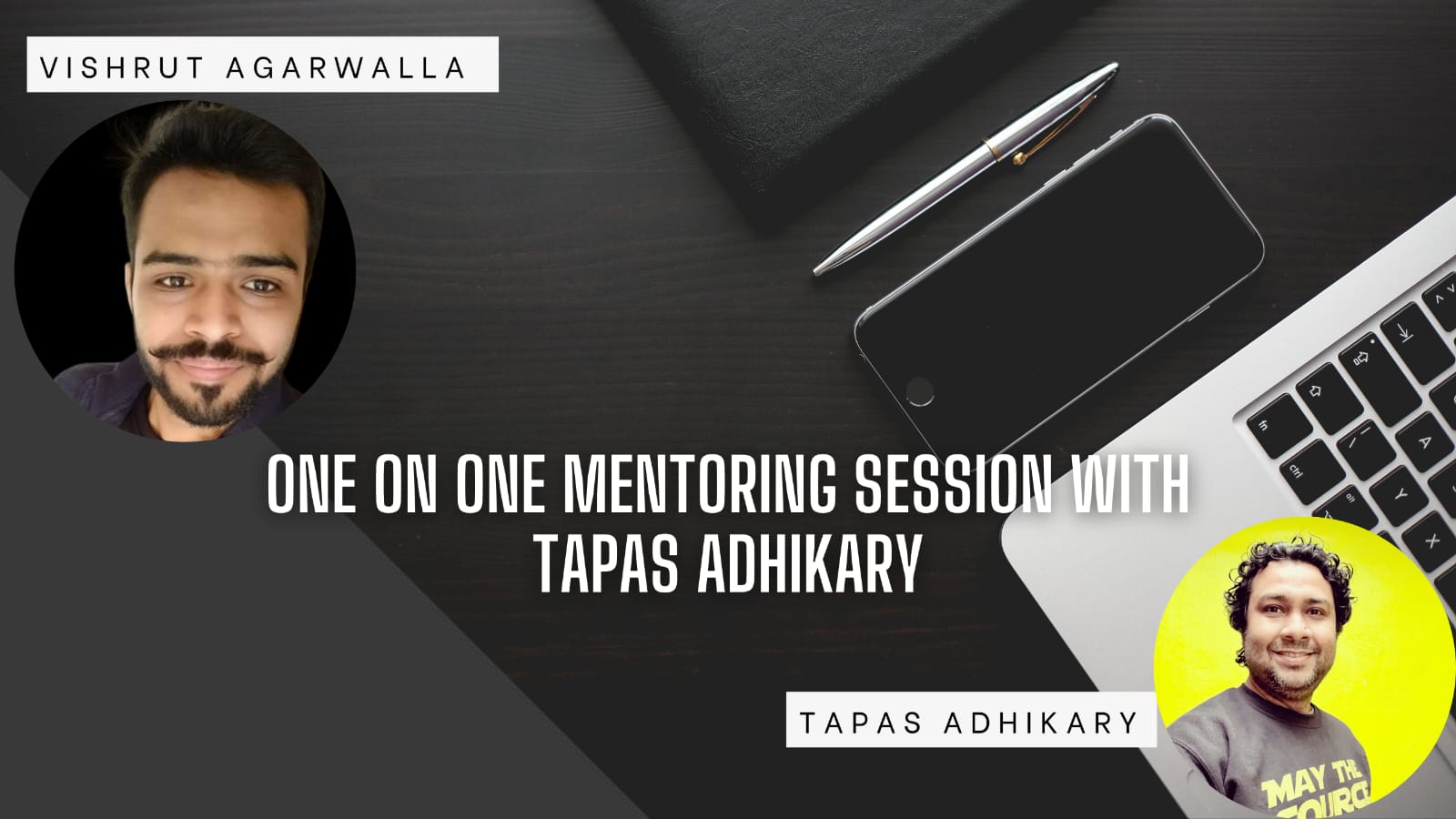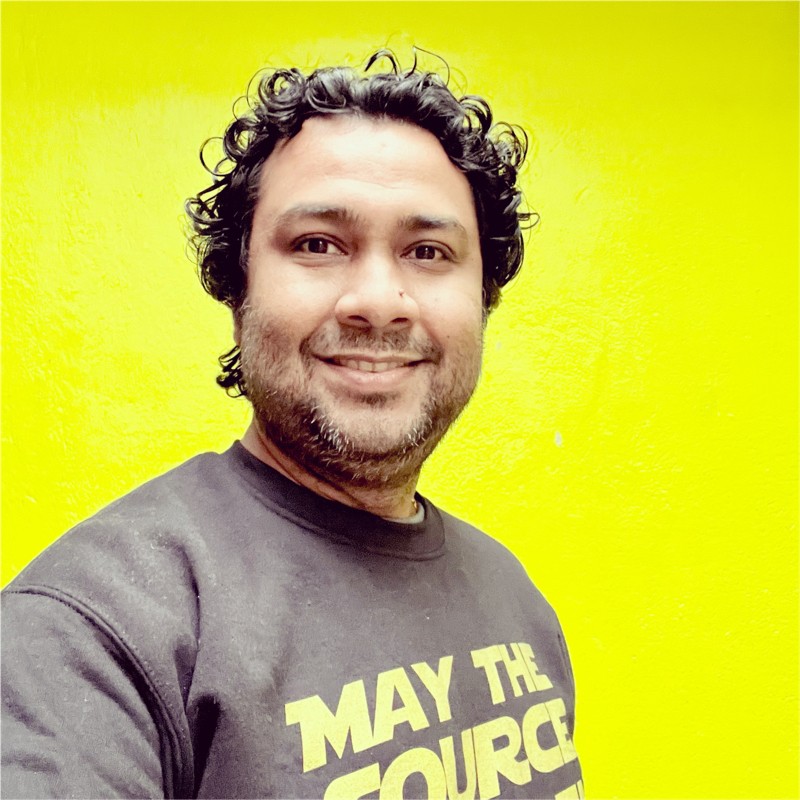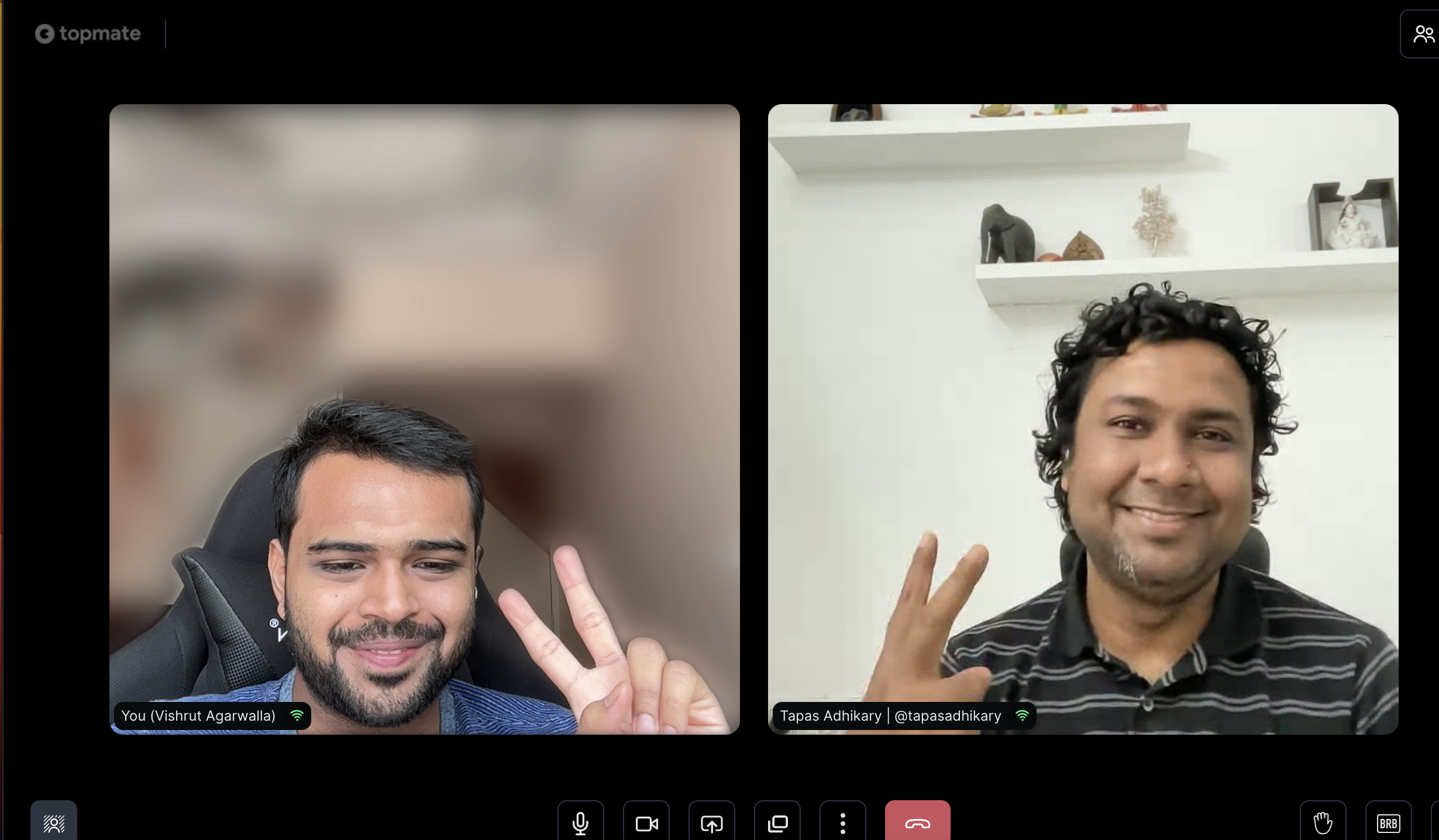Sipping Knowledge: A Coffee Chat with Tapas Adhikary
 Vishrut Agarwalla
Vishrut AgarwallaTable of contents
- Introduction
- Who is Tapas Adhikary?
- Coffee Chat Session
- As a Frontend Developer, who is good with React. What are the most common Hooks to learn or master?
- Difference between useContext and Redux? What is their best use case? Best State Management Tool
- How and what content to create? How to write good blogs?
- Conclusion

Introduction
I recently enjoyed an insightful 30-minute coffee chat with Tapas Adhikary, a highly skilled software engineer and technical blogger. We dove deep into his incredible journey, experiences, and insights into the thrilling world of technology! Come along with me as we embark on this exhilarating conversation over a cup of coffee, uncovering the thoughts and wisdom of a true industry GENIUS!

Who is Tapas Adhikary?
For folks, who don't know who Tapas Adhikary is or what does he do. I will give you a summary of it.

Tapas Adhikary is the Founder of ReactPlay, ReactPlay Blog and also he is Head of Content at Showwcase. He is a tech-content creator on Youtube and he has more than 6K subscribers on it. He has written more than 250+ articles on various topics for various big names in the organizations such as freecodecamp, CSS-Tricks,OpenReplay's Tech Blog , Aviyel, Bugfender and many more.
Coffee Chat Session
Allow me to share the highlights of my coffee chat session with Tapas. I will be continuing the blog by putting all the stuff in the Questions and Answers format i.e. the questions asked by me and the answers he gave me for the same.

Before diving into the questions and the valuable insights I gained, let me introduce myself briefly.
So, my name is Vishrut Agarwalla, and I have completed my Engineering degree in Electronics and Telecommunications. I previously worked as an Associate Software Engineer and am currently seeking remote job opportunities. In the meantime, I am contributing to Open Source projects, exploring various endeavours such as freelancing, participating in bounty hunting on Replit, and engaging in other activities.
Let's move toward the Questions :
As a Frontend Developer, who is good with React. What are the most common Hooks to learn or master?
Some of the most important and commonly used Hooks for every React Developer to know are:
useState
useReducer (once you get comfortable with useState then learn it)
useEffect
useTransition
useId (Newly Added Hook in React)
useContext
Now, some of the least used Hooks:
useMemo
useCallback
I will write about all these Hooks in a separate blog. Explaining in detail about these Hooks, their code examples and their best use cases in detail.
Difference between useContext and Redux? What is their best use case? Best State Management Tool
When managing the state in a React application, developers often face the dilemma of choosing between useContext and Redux. Both tools serve the purpose of managing the application state, but they differ in complexity and use cases. useContext, a built-in React Hook, provides a simple and straightforward way to share states across components without prop drilling. It is best suited for small to medium-sized applications, such as personal projects, where state management requirements are not overly complex, i.e., you don't have to pass data in the components beyond three levels. On the other hand, Redux is a powerful state management library that offers advanced features like middleware support, time-travel debugging, and a robust ecosystem of plugins. It is ideal for large-scale applications with complex state management needs. Ultimately, the choice between useContext and Redux depends on the size and complexity of the application, as well as the developer's familiarity and comfort with each tool.
Thus, if you don't have to work on complex projects, it is more practical to opt for the useContext hook, which is provided by React by default, rather than adding more complexity and dependency.
How and what content to create? How to write good blogs?
As we all know Tapas has a huge following on Twitter,huge subscribers on Youtube and also he has created a whole lot of content in the form of Blogs.
So, I asked him how blogging helps, how to write some good blogs and what are his tips on content creation as a blog.
So, these are the steps he asked me to follow, which everyone can:
Try to be consistent with blogging.
Try to read different people's blogs for understanding.
Initially don't think about the word limits, SEO's etc etc. It all boils down to one point, ideas should flow through you and you shouldn't stop them.
There is nothing called a "Quality Blog", "Good Blog" or "Bad Blog". A blog is a blog and most importantly it is your content written in your unique manner.
So, don't stop yourself from writing it. Thinking that it is going to be duplicate or people are going to judge me or anything of that sort.
Last but not least, try to make it a habit to at least write 1 blog a week or 1 blog in 15 days or 1 blog a month whichever cycle suits you.
Do write a blog as it will help you to stay consistent and would also improve your blog writing skills.
Conclusion
In conclusion, my coffee chat with Tapas Adhikary was truly remarkable!
He provided valuable insights into his journey, experiences, and thoughts on technology. Key takeaways include understanding the most important React Hooks, the difference between useContext and Redux, and tips for creating quality content and writing effective blogs. Consistency, learning from others, and focusing on expressing unique ideas is crucial for success as a technical writer, content creator, and skilled software developer.
Hope you find this blog insightful. See you in the next one!
Bye 👋 and Stay Happy 😄!
Subscribe to my newsletter
Read articles from Vishrut Agarwalla directly inside your inbox. Subscribe to the newsletter, and don't miss out.
Written by

Vishrut Agarwalla
Vishrut Agarwalla
Focused and goal-oriented Engineer with some Experience (0.5 months) in the tech industry with a keen interest in Web Development and Design. Actively seeking an entry-level opportunity to hone my existing skills and learn new ones in the field of work.